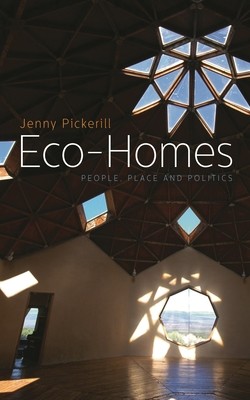
- We will send in 10–14 business days.
- Author: Doctor Jenny Pickerill
- Publisher: Zed Books
- ISBN-10: 1780325312
- ISBN-13: 9781780325316
- Format: 14.2 x 21.8 x 2.5 cm, kieti viršeliai
- Language: English
- SAVE -10% with code: EXTRA
Reviews
Description
It is widely understood that good, affordable eco-housing needs to be at the heart of any attempt to mitigate or adapt to climate change. This is the first book to comprehensively explore eco-housing from a geographical, social and political perspective. It starts from the premise that we already know how to build good eco-houses and we already have the technology to retrofit existing housing. Despite this, relatively few eco-houses are being built.
Featuring over thirty case studies of eco-housing in Britain, Spain, Thailand, Argentina and the United States, Eco-Homes examines the ways in which radical changes to our houses - such as making them more temporary, using natural materials, or relying on manual heating and ventilation systems - require changes in how we live. As such, it argues, it is not lack of technology or political will that is holding us back from responding to climate change, but deep-rooted cultural and social understandings of our way of life and what we expect our houses to do for us.EXTRA 10 % discount with code: EXTRA
The promotion ends in 22d.14:01:51
The discount code is valid when purchasing from 10 €. Discounts do not stack.
- Author: Doctor Jenny Pickerill
- Publisher: Zed Books
- ISBN-10: 1780325312
- ISBN-13: 9781780325316
- Format: 14.2 x 21.8 x 2.5 cm, kieti viršeliai
- Language: English English
It is widely understood that good, affordable eco-housing needs to be at the heart of any attempt to mitigate or adapt to climate change. This is the first book to comprehensively explore eco-housing from a geographical, social and political perspective. It starts from the premise that we already know how to build good eco-houses and we already have the technology to retrofit existing housing. Despite this, relatively few eco-houses are being built.
Featuring over thirty case studies of eco-housing in Britain, Spain, Thailand, Argentina and the United States, Eco-Homes examines the ways in which radical changes to our houses - such as making them more temporary, using natural materials, or relying on manual heating and ventilation systems - require changes in how we live. As such, it argues, it is not lack of technology or political will that is holding us back from responding to climate change, but deep-rooted cultural and social understandings of our way of life and what we expect our houses to do for us.

Reviews